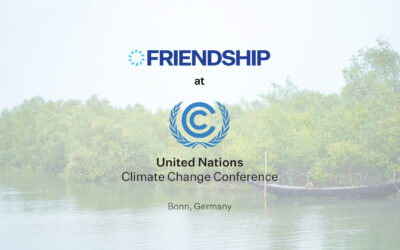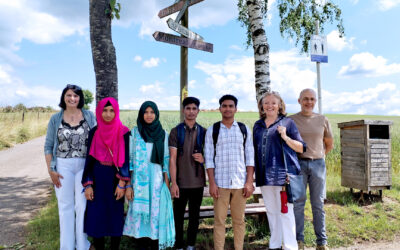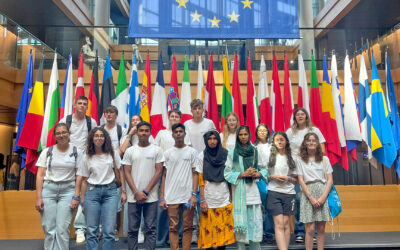The responsibility for climate action lies on every individual—a kind reminder for World Environment Day.
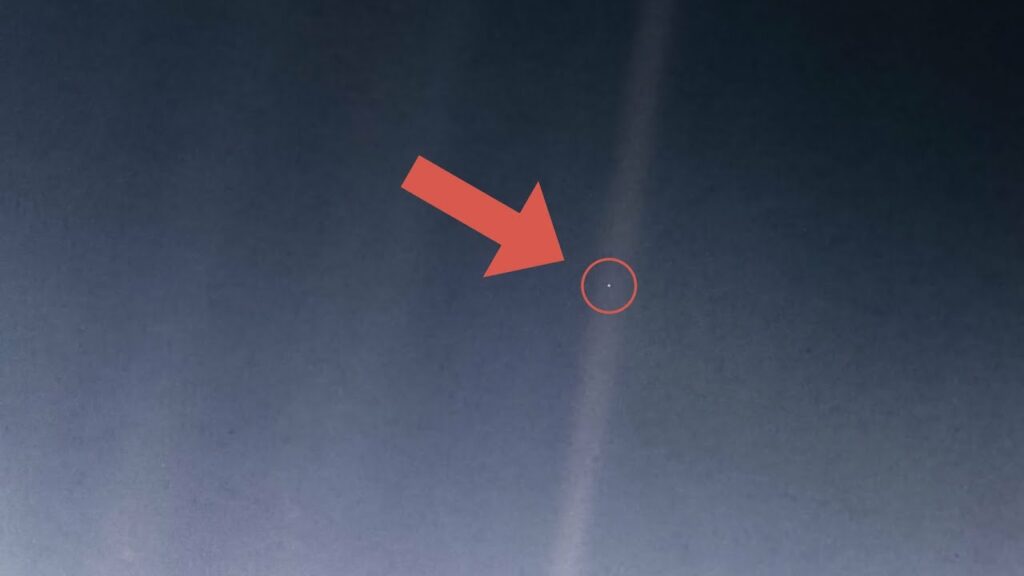
by Raeed Abd-Allah Chowdhury
May 31, 2022
“There is perhaps no better demonstration of the folly of human conceits than this distant image of our tiny world. To me, it underscores our responsibility to deal more kindly with one another, and to preserve and cherish the pale blue dot, the only home we’ve ever known.” The famous quote by Carl Sagan almost 30 years ago is just as relevant in 2022, on World Environment Day, if not more so than in 1994. This year’s theme, “only one Earth” is perfectly captured by this picture. Taken by the Voyager 1 space probe in 1990, the picture shows Earth from 6 billion kilometres away—as nothing more than a fraction of a pixel of what was then a high-resolution image.
In its entirety, the quote explains the futility of trivial, temporal human pursuits and the ills of consumerism and greed much more eloquently than any mortal author could presume to paraphrase. Having said that—it is a notion that merits mention in this day and age. At what is hopefully the tail end of a worldwide pandemic, it may be said that we’ve developed a greater appreciation for nature.
Not majestic mountains, lovely lakes and beautiful beaches; but the fact that nature will endure. It will be battered and bruised, but it will, in the end, win. As with the dinosaurs, even the most calamitous events will be evidenced by geological layers, and an Earth unlike any we are familiar with will take its place. We, humanity, will not be around to see it, and we will have done it to ourselves.
A 2020 study published in Scientific Reports, in which both population growth and deforestation were used as proxies for total resource consumption, warns that if consumption continues at the current rate for the next several decades, it can trigger a full or almost full extinction of humanity. The study says that “while violent events, such as global war or natural catastrophic events, are of immediate concern to everyone, a relatively slow consumption of the planetary resources may be not perceived as strongly as a mortal danger for the human civilization.” Indeed, the World Economic Forum says that affluence is a greater threat to humanity than the coronavirus. At current trends, by 2050 the near-10 billion people would require three Earths-worth of resources to survive.
We have only one Earth though, and one chance, and it is up to us—each and every one of us, as individuals, to step up and take action. It is easy to sit back and lay blame to big corporations and corrupt governments—indeed fingers should be pointed in their direction, but we too have a responsibility. Not everyone need be an activist, advocate or engineer, but everyone needs to do their part. Reduce, reuse, recycle. Responsible purchases, responsible disposal, responsible consumption.
“Slow fashion is the recognition that, there are human beings behind the clothes we wear. As consumers, we have the power to change the world by just being careful in what we buy”- Nazra Mahjabeen Sabet, Director of Operations, Friendship Colours of the Char.
Colours of the Chars, the slow-fashion lifestyle brand and social enterprise attached to Friendship has outlets in Dhaka and Luxembourg sell items woven by women from remote, deltaic islands using traditional, natural, environmentally friendly methods in small numbers.
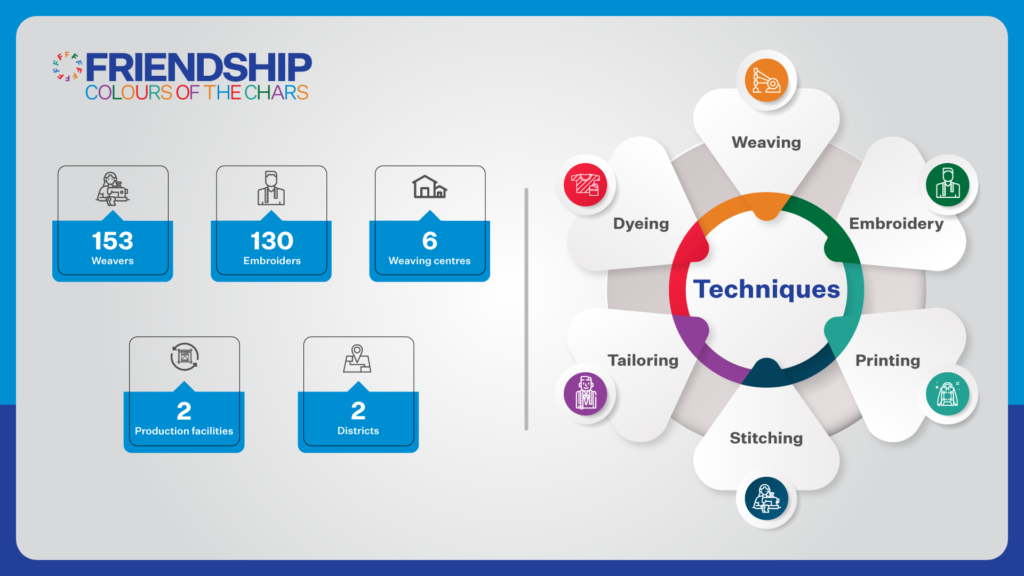
Generally, products these days are designed to wear down or become obsolete to encourage the purchase of the next generation, but CotC, and brands like it, work to reverse that trend. The products are crafted by women without the use of electricity, using traditional handmade techniques, thereby preserving the material culture, promoting slow-fashion and providing a revenue stream for a marginalised demographic. There are now 2 production facilities and 6 weaving centres on as many deltaic islands, in the districts of Kurigram and Gaibandha.
If you have the internet access to be reading this, you have the access to know better than to add to the pollution that has already brought our own extinction onto the horizon. As dramatic as it would be to have a planet-wide cataclysm from the imagination of Roland Emmerich, the truth is more T.S Elliot. “This is the way the world ends, not with a bang, but with a whimper.”
The world as we know it is dying, and we’re killing it. We are waiting for one big event to really put the final nail in the coffin, but we’ve already dealt enough damage to make it rather definitive. Slowly, but surely, we’ve perhaps sealed our own fate.
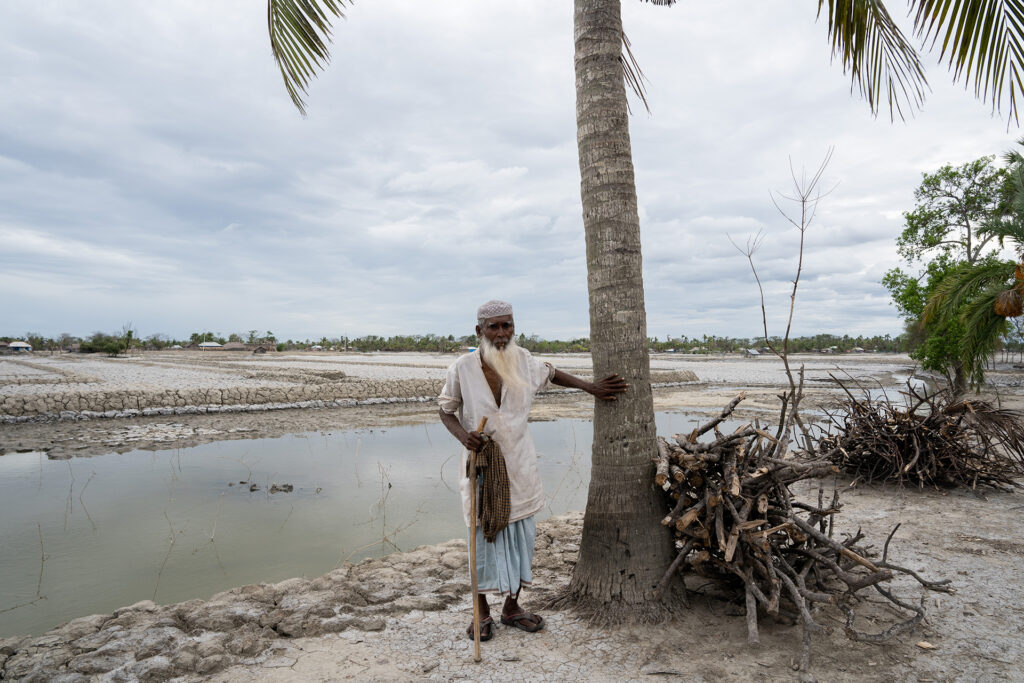
But there is hope. We each have to make an effort—an active, conscious effort—to do better. The Blue Mangrove Fund for example allows one to contribute to afforestation efforts and assist climate-affected local communities in the preservation of habitat and livelihoods. Friendship has been committed to climate adaptation since the start, and its many programmes, initiatives and interventions are too many to list here, but it is not enough for one organisation to make every effort. Despite the mangrove funds, raised plinths, environmental awareness programmes, floating hospitals, dismantlable schools, solar-power, alternative livelihood options and a plethora of other interventions from Friendship alone; it is for every organisation to be responsible in the way they conduct their activities, if not take proactive, purposeful, direct actions in stalling, if not reversing climate change.
If the pandemic, rising global temperatures, frequency of climate-change-induced natural disasters, aberrant weather patterns, increase in virulent disease and massive loss of wildlife and habitats around the world are not the portents of our own undoing, perhaps nothing will be.
The time for shrugging it off as a long-distant concern is gone. It is not nature that we need be worried about, it is ourselves. Greed has been mankind’s greatest motivator, as has the instinct for self-preservation, so perhaps an insatiable desire for our own continued existence should now be at the forefront of all that we do.


